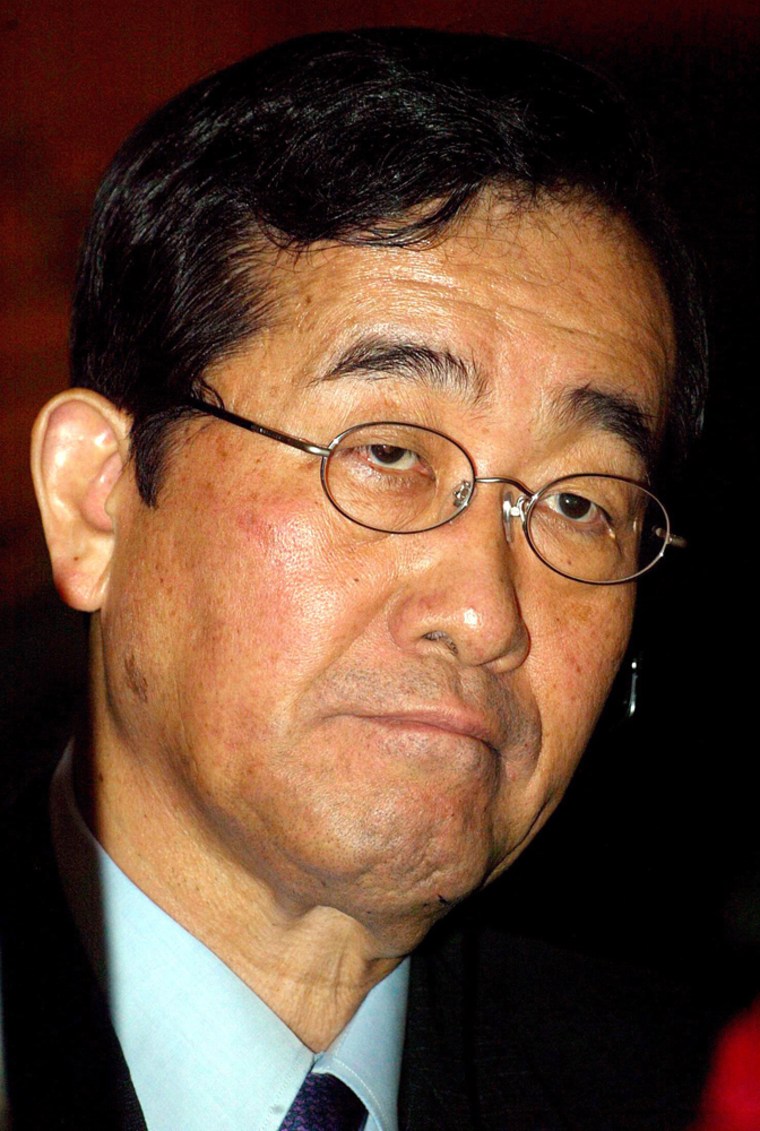A scandal-tainted minister in Prime Minister Shinzo Abe’s cabinet has committed suicide, media reported on Monday, compounding problems for the Japanese leader whose support had already dived ahead of a July election.
The suicide by Agriculture Minister Toshikatsu Matsuoka came two months before an election for parliament’s upper house, the first big test at the polls for Abe’s ruling coalition.
“This will have serious political fallout, but at this point it’s hard to tell how much,” a government official told Reuters.
Matsuoka -- under fire for a series of political funding scandals -- was found unconscious in his room at a residential complex for lawmakers in Tokyo, Chief Cabinet Secretary Yasuhisa Shiozaki told reporters.
Media said Matsuoka had hanged himself in his room. Police later confirmed had died in hospital.
Linked to scandals
Local media had linked Matsuoka to at least two political fund scandals including one involving massive, dubious spending on his office near parliament.
Last week media also reported that he had received political donations from businessmen involved in a bid-rigging scandal.
Matsuoka had repeatedly denied any wrongdoing.
The suicide came as Abe’s public support rate slumped to its lowest level since he took office last September, increasing chances his ruling camp could lose its majority in the July upper house election.
Only 32 percent of the voters who responded to a weekend survey by the Mainichi newspaper backed Abe, down 11 points from April, while a separate poll by the Nikkei business daily put the prime minister’s support rate at 41 percent, down 12 points.
The Mainichi survey showed that 42 percent of the voters want the main opposition Democratic Party to win the July election, compared with 33 percent who want Abe’s ruling Liberal Democratic Party to win.
Slide in Abe's popularity
The slide in Abe’s popularity came a month after a media survey showed his support had risen following a visit to the United States for talks with President George W. Bush. It erased earlier gains attributed to a growing rapprochement with China, ties with which had frayed under his predecessor.
Abe’s administration has come under fire after the Social Insurance Agency, which manages the pension system, acknowledged that data on 50 million premium payments had been mixed up.
The failure to keep track of the payments means some people are probably getting smaller pensions than they are entitled to.
Abe has said the government will try to sort out the problem.
Loss of a ruling majority in the upper house would mean key legislation could be blocked and economic reforms delayed, possibly affecting the stock market, some analysts said.
Abe’s Liberal Democratic Party and its junior coalition partner, the New Komeito, need to win a combined total of 64 seats out of the 121 up for grabs in the July election to keep their majority in the 242-seat upper house.
Legislative deadlock could force the prime minister to call a snap election for the lower house, analysts said, although no lower house election is required until 2009.
